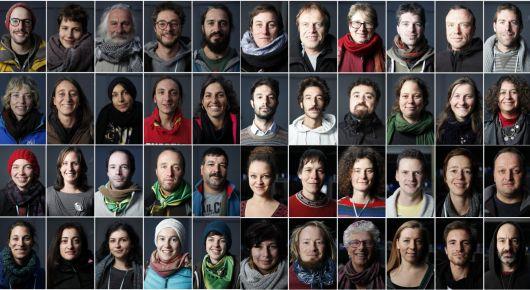Civil society seeks to influence future of agriculture in Europe and Central Asia

Civil society organizations want to influence the future work of the UN Food and Agriculture Organization (FAO) in Europe and Central Asia. With this in mind, a two-day consultation opens in Budapest today, with some 50 participants from several countries of the region.
The Consultation will aim to concentrate positions among civil society organizations, in advance of the 31st session of FAO’s biennial Regional Conference for Europe, set to take place from 16 to 18 May in Voronezh, Russian Federation.
At the Regional Conference, 53 FAO member countries and one member organization (the European Union) will debate emerging issues in food and agriculture, and set the direction of FAO’s work in the region for the coming two-year period.
This week’s Consultation in Budapest will elect representatives to travel to Voronezh and present the civil society positions.
While the Regional Conference is a formal meeting of FAO members in Europe and Central Asia, civil society organizations are invited as observers to participate in the debate. In the Europe and Central Asia region, the civil society and nongovernmental consultation process has evolved since 1998 with broad-based support from the regional civil society community and FAO. Travel and accommodation costs for some 30 participants in this week’s Consultation were covered by FAO.
Darya Alekseeva, FAO regional partnerships officer, noted that at the previous FAO Regional Conference (May 2016, Antalya, Turkey), civil society groups had set up a facilitation committee to help create better coordination. This week, the Consultation will review what has been accomplished in the intervening two years.
“Civil society has a major role to play in ensuring the public is aware of issues that may affect their lives,” said Vladimir Rakhmanin, FAO Assistant Director-General and Regional Representative for Europe and Central Asia. “Bringing civil society organizations to FAO’s Regional Conferences broadens the discussions, and that is to the benefit of us all.”
“Bringing civil society organizations together, and to FAO’s
Regional Conferences, broadens the discussions, and that
is to the benefit of us all.”
Vladimir Rakhmanin
FAO Assistant Director-General and
And Regional Representative for Europe and Central Asia
The Consultation will also discuss and evolve positions on every agenda item of the upcoming FAO Regional Conference. Highlights include sustainable agriculture and food systems in a changing climate, application of new technologies to agriculture, and setting the priorities for FAO’s work in the region.
In addition, the Consultation will discuss civil society work in the region, including cooperation with FAO, and hold a side event on the UN Declaration on the Rights of Peasants.
Technical officers from FAO’s Regional Office for Europe and Central Asia, based in Budapest, will assist with presentation of the agenda items. For their substantive discussions, however, the civil society participants will work independently.
26 April 2018, Budapest, Hungary
